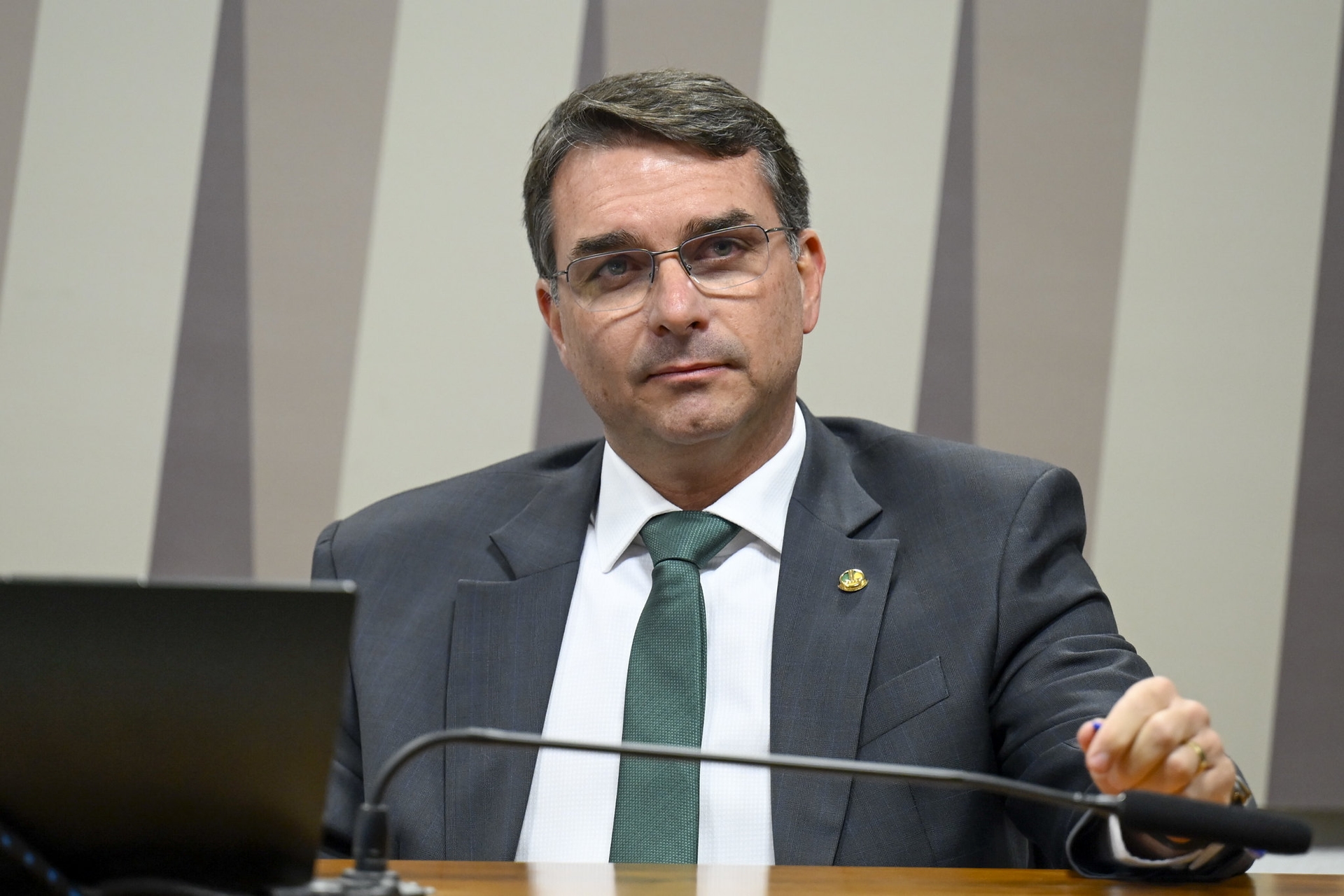“No picanha and no electricity,” says Flávio Bolsonaro after Aneel’s warning about the electrical system

Senator Flávio Bolsonaro (PL-RJ) reacted this Thursday (16) to the warning made by the director-general of the National Electric Energy Agency (Aneel), Sandoval Feitosa, about the “extremely dangerous” situation in the control of the Brazilian electrical system.
Feitosa stated that the system faces a “ramp problem,” characterized by high power variations that the National System Operator (ONS) is forced to manage in short periods.
The problem is caused by the rapid expansion of intermittent renewable sources (wind and solar) and the stagnation of the system's storage capacity. Starting at 4 p.m., solar energy begins to leave the electrical system, generating an increase in thermal and hydroelectric generation to meet peak consumption.
The director highlighted that, if there is no regulatory intervention and adequate planning, the ONS will have to ramp up from the current 40 GW (Gigawatts) to 53 GW in 2028. For Feitosa, the danger is caused by the high instability that can lead to the system's collapse.
“No beer, no picanha and no electricity!” said Flávio Bolsonaro in reference to the promise repeated by President Luiz Inácio Lula da Silva (PT) during the 2022 campaign that Brazilians would have access to picanha and beer.
The director of Aneel made the warning during the public hearing this Thursday (16) on Provisional Measure 1,304/2025, which limits the transfer of electricity sector costs to consumers.
"Imagine, during this ramp-up, if we had an incident, which is entirely possible, damage to important equipment, or a lack of protection coordination. The system would simply collapse," Feitosa said.
The current 40 GW ramp is equivalent to the peak demand of an entire country, such as Spain. The projected 53 GW ramp is equivalent to the combined demand of Spain and two countries, such as Portugal, whose peak demand is 8 GW.
Furthermore, Feitosa stated that tariffs are expected to continue rising due to the current level of charges in the sector. "We have increasingly higher electricity tariffs, and they will continue to rise sharply due to the subsidies included in the electricity bill," he said.
The electrical system needs renewal and energy storage is seen as a "wild card"The concern about the ramp is shared by other industry experts, who point to the depletion of flexibility and power resources. Historically, the system was hydrothermal, where the energy contracted from hydroelectric plants brought with it a complete package of attributes, such as power, flexibility, and rapid response.
However, the recent expansion, while healthy, has been of sources that deliver energy at competitive prices, but without the flexibility and ancillary services that ensure the stability of the electrical system. This shift has led to the system becoming "significantly deficient in capacity, flexibility, and ancillary services."
The president of the Brazilian Association of Electric Energy Generating Companies (Abrage), Marisete Pereira, reinforced that the daily amplitude of this power variation, a phenomenon linked to the so-called "Duck Curve", already reaches 45 GW and the ONS operating plan projects that this daily amplitude will be more than 50 GB by 2029.
This critical ramp requires that hydroelectric plants be activated instantly during the peak period (between 2 pm and 10 pm) to produce around 45 GW on average and meet 80% of consumption.
Feitosa emphasized that the current electricity system, which is "completely different" from the previous hydrothermal model, requires improved and renewed legal frameworks. The storage function, which was previously met by the growth of hydropower capacity, now needs to be addressed by other solutions.
Energy storage is seen as a "wild card" resource that can act as a load at valley times (absorbing excess) and as a source at peak times (filling the ramp).
Feitosa assured that, despite the agency's sub-legal limitations on creating a new storage agent or defining specific tariffs, Aneel is already prepared to bid for batteries and receive grant applications.
The Agency signaled to the Ministry of Mines and Energy and the ONS that, if the planning identifies the need for a battery tender, the regulator has the necessary conditions to move forward with this agenda.
gazetadopovo





